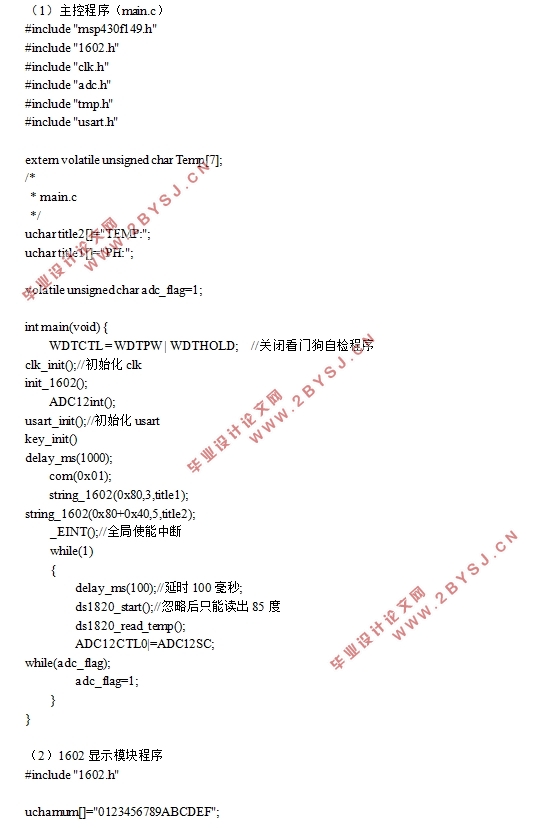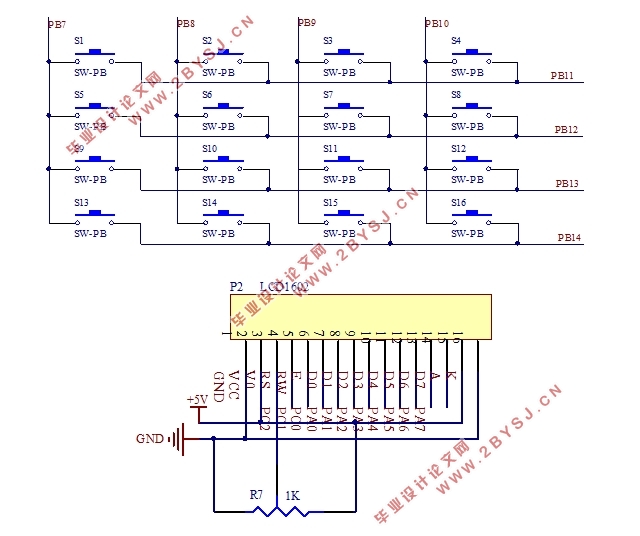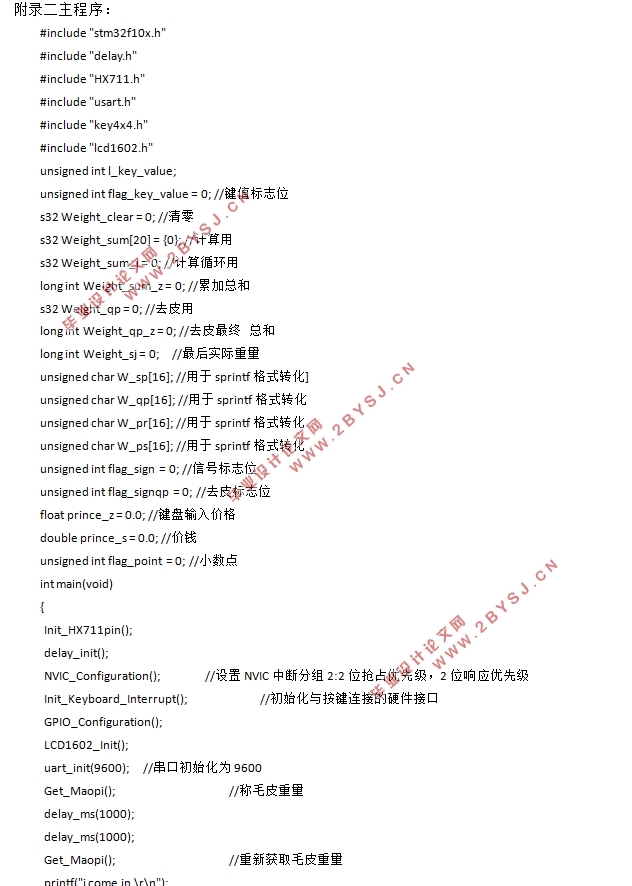基于单片机的电子秤设计(附实物图,程序清单)
无需注册登录,支付后按照提示操作即可获取该资料.
基于单片机的电子秤设计(附实物图,程序清单)(论文12000字,外文翻译,程序清单)
摘要:随着科技的发展,在各个领域中,对质量测量的精度要求越来越高。精度高、功能多的电子秤逐渐取代传统的机械式称重装置。本论文首先分析了电子秤的研究背景及意义,讨论了其国内外现状及发展前景,并在此基础上设计了一款基于stm32单片机的电子秤。该设计以stm32单片机为核心,以电阻应变片为传感器,通过高精度的A/D芯片HX711进行电压采集,将模拟信号转换为数字信号,单片机接收到数字信号后,进行数据处理分析,最后经过友好的人机交互界面,实时控制系统并显示结果。本设计使用AltiumDesigner软件进行硬件电路设计,使用Keil软件进行软件程序设计,经过器件挑选、焊线、硬件电路调试、软件调试下载,最终实现所有预期功能。并且该电子秤操作简单,误差为1g,具有计价、累计、去皮等多种功能,具有一定的应用价值。
关键词:电子秤;stm32;AD转换器;定量
Design of Electronic Balance Based on Single Chip Microcomputer
Abstract:With the development of science and technology, the accuracy requirements for quality measurement are getting higher and higher in various fields. Electronic scales with high precision and many functions gradually replace traditional mechanical weighing devices. This paper first analyzes the research background and significance of electronic scales, discusses its current situation and development prospects at home and abroad, and designs an electronic scale based on stm32 single-chip microcomputer. The design takes the stm32 single-chip microcomputer as the core, and the resistance strain gauge is used as the sensor. The voltage is collected by the high-precision A/D chip HX711, and the analog signal is converted into a digital signal. After receiving the digital signal, the single-chip microcomputer performs data processing and analysis. A friendly human-computer interface that controls the system in real time and displays the results. This design uses Altium Designer software for hardware circuit design, software programming using Keil software, device selection, wire bonding, hardware circuit debugging, software debugging download, and finally achieve all expected functions. And the electronic scale is simple to operate, the error is 1g, and has various functions such as pricing, accumulation, peeling, etc., and has certain application value.
Key words:Electronic scale; stm32; AD converter;Quantitative.



目录
1引言 1
1.1 选题背景及意义 1
1.2 电子秤发展现状与前景 1
1.3 本文主要研究内容 2
2系统方案设计 2
2.1 系统设计目标 3
2.2 系统方案设计 3
2.3 微处理器选择 4
2.4 显示屏选择 4
2.5 键盘选择 5
2.6 压力传感器原理 5
2.7 HX711介绍 6
3硬件电路设计 7
3.1 stm32f103rbt6简介 7
3.2 stm32f103最小系统 8
3.2.1 电源电路 8
3.2.2 复位、时钟电路 9
3.3 数据采集电路 10
3.4 按键、显示电路 11
4软件程序设计 12
4.1 主程序设计 12
4.2 HX711程序设计 13
4.3 按键、显示程序设计 13
5系统调试与分析 15
5.1 整体实物图 15
5.2 系统累计功能图 17
5.3 系统去皮功能图 18
5.4 系统计价功能图 18
6总结与展望 19
参考文献 20
致谢 21
